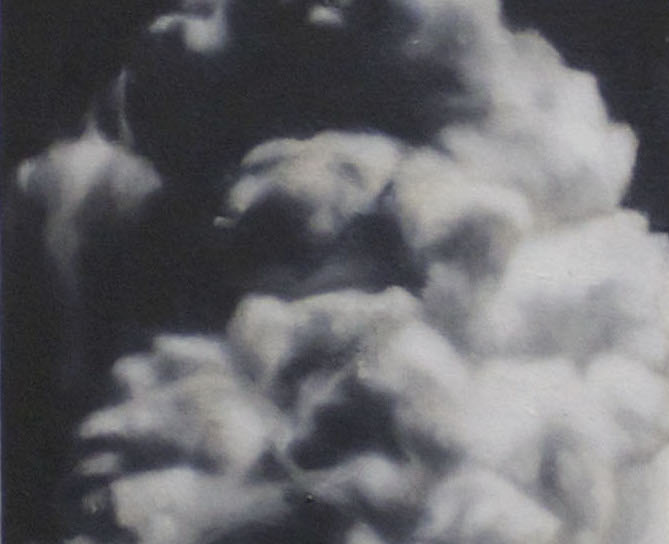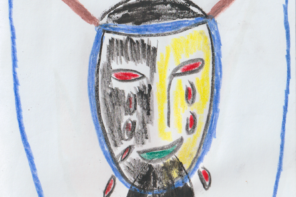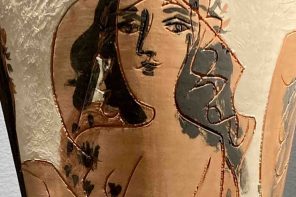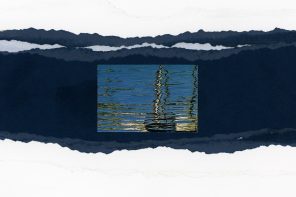Read Jonathan Larson’s translation of an excerpt from Tomatoes by Nathalie Quintane.
I first started reading the French writer Nathalie Quintane right around the time I was setting out on another (very likely doomed) attempt at reading Marcel Proust’s In Search of Lost Time, or À La Recherche du Temps Perdu. I was feeling, as one so often feels, overcome by a sense of both personal and public powerlessness—at that place in life where by every metric I should be professionalizing as a writer/translator/educator, which I could only grasp as fretting over the balance of my Submittable record and speculating on the likelihood of having to apply for unemployment once again after another semester of adjuncting came to an end, any sort of popular protest or organizing I participated in would always devolve into a transfer of energy to some already established pattern, precedent, or formulation—try again, vote again, vote better. For no good reason, I had myself convinced that any meaningful momentum would come from escape-reading Proust’s La Recherche. Within its enclosure I could be freed up to while away, an adherent to the cult of beauty, an underbutler in the house of genial culture, savoring the touch of the book’s gold-gilded pages (the leather-bound Pléiade edition was on permanent self-checkout from the union-busting hallmark NYC bookstore) as I turned (actually, churned out) all 2,500 of them. It was here that I came across Quintane’s Ultra-Proust: Une lecture de Proust, Baudelaire, Nerval (a reading of Proust, Baudelaire, Nerval), published by the Éditions La Fabrique in 2017. The editor of La Fabrique had approached Quintane about writing a companion book to appear alongside their edition of Proust’s Contre Saint-Beuve, a series of essays which he had never completed. Ultimately, Proust’s book did not appear on La Fabrique. Ultra-Proust won me over from its first provocation; the first chapter is titled “For an O.O.P., Obligatory Oblivion of Proust, lasting a half-century.”
The program outlined in Ultra-Proust argues for a betrayal of literature (and of Proust, Baudelaire, and Nerval for that matter, along with every other branding), so that it (and they)—and most importantly also a we—may finally live. Quintane pokes holes intemperately in France’s overinflated Proust economy using a variety of genred modes, from dialogue, prose, and verse to criticism and essay. It’s hard to briefly summarize what Proust means to the French culture industry, where Pantheonization (in a literal pantheon) of writers sparks national debates that supply clickbaity talking points for the talk shows and opinion columns, but suffice it to say that Ultra-Proust primarily targets the commentariat and their fawning-over his bonhomie (channeling Walter Benjamin, Quintane asks, what about his “abyssal malice”?) and how many flowers he namedrops. Reading Proust won’t make you good, she counters. Instead, she muses out loud about reclaiming Proust for the proletariat, and whether that’s even useful. To work it out, she hypothesizes a house visit paid by Proust and the French philosopher Jacques Rancière to her grandmother, a home-based glovemaker with 200 more gloves to stitch and dye before the weekend. After answering the door to be greeted with the unmistakable impression of two sales reps, she would slam the door in their faces before they could make their way in to give their pitch for their art and ideas. In that case, whither Proust?
Quintane’s readings, which operate as part annotation and part inscenation, snatch Proust away from both the crudities of his vast and arcane biographical data and from the idea of the ideal book (the anonymous dead author Proust deployed by the likes of Barthes, Blanchot, and Foucault)—his reception and embalmment officiated by the status quo—so that if we absolutely must persist in reading Proust, let it at least be in terms of his polemic against Sainte-Beuve (who established the crude biographical method of criticism) and his treatment of and sensitivity to class relations in La Recherche. If you went to a good school and learned early on it would work to your social climb to commit the long sentences of Proust (extra points if they’re extra long) to memory to deploy as party tricks—good for you—but there’s no use for Proust unless there’s stuff in it to rework and reapply toward revolutionary ends.
Ultra-Proust is Quintane’s only title that signals ‘criticism’ in the strong sense, her works—especially those appearing after Tomates (2010)—all deploy the critical mode in discerning which practices, ideas, art works, rituals, etc. hold emancipatory value and suggesting we rid ourselves of whatever doesn’t. Her previous collections (of which Joan Darc has been translated into English by Cynthia Hogue and Sylvain Gallais) all develop a poetics that could be thought of as documentary or post-objectivist with titles such as Shoe, Formage, and The Quasi-Montenegrins, but Tomates signaled a new shift in Quintane’s writing. With this book she asks the basic question of how to grow tomatoes (a small planter from the big box store Jardiland or regional heirloom seeds fertilized with an organic nettle manure whose recipe is banned?) which doubles as a question for how, if possible, to cultivate an insurrectionary movement by paralleling the arrest of the so-named “Tarnac Nine” with her simultaneous reading of the nineteenth-century French revolutionary socialist, Louis Auguste Blanqui. The nine anarchists dubbed the “Tarnac Nine” first formed around the literary review Tiqqun and then settled in the village Tarnac (pop. ~300) in central France to grow their own food communally and run a provision store and bar, until, in November of 2008, a brigade of around 150 balaclava-clad anti-terrorist police descended on the town (to cameras poised and ready) and arrested the group due to “criminal association for the purpose of terrorist activity” and on the grounds that they had been sabotaging the electrical lines of France’s TGV highspeed rail and were preparing greater disruption. To bolster the case, the prosecution submitted the anonymously authored anarchist tract, The Coming Insurrection, as evidence and asserted spuriously that one of the “Tarnac Nine” members, Julien Coupat, had written it. Thus, the intent and declaration of the literature, the overthrow of the capitalist system, was the crime.
Despite the sensational backdrop, Quintane’s Tomates is not a sensational text. Blanqui and l’affaire Tarnac, the 2005 riots in the banlieues and the 1965 Watts Rebellion, as well as other political figures and scenes enter into the picture as a simplified landscape against which to contemplate writing and its relation to revolutionary change. We encounter episodes from a literary festival where cops police the border between audience and reader, reflections on potatoes and their evocation of the lowly classes, how the only word Antonin Artaud would utter when visited in the asylum during the war was ‘taters,’ a parody of poet Francis Ponge and a review of the book Les Jumelles (“The Female Twins”), which is put forward as a book exemplifying the insurrectionary style. Tomates, by rooting around in the dirt for fire starters, comparing industrial to organic, concludes that “insurrection cannot take place in a book.” Literature per se, and maybe more so literary culture, takes place apart from the uprising, but not apart from everyday life, individualized, anonymized, grouped, peopled; each of these identifications is an outgrowth and inflection of the other.
As a whole, Quintane’s work could perhaps best be understood as an intervention in the tradition of the French prose poem, a restrategization of its internal logic. In so happening to grow tomatoes, the plot enacts the conditions structuring the metabolic rhythms that keep everything in its place while probing playfully, obsessively, directly, and experimentally to think and feel for just how and where to break for new ground, new language, new old growth.
Nathalie Quintane was born in Paris in 1964 and now lives in Digne-les-Bains, France. She has published over 20 works that are part poetic, essayistic, and prose texts, most of which have appeared with the press P.O.L. Her first book to appear in English, Joan Darc, was published by Fence Books/La Presse in 2017.
Jonathan Larson is a poet and translator living in Brooklyn. His translations of Francis Ponge’s Nioque of the Early-Spring and Friederike Mayröcker’s Scardanelli were published by The Song Cave in 2018. In 2019 OOMPH! Press published his translation of Mayröcker’s From Embracing the Sparrow-Wall, or 1 Schumann-Madness.
Translation Series curated by Jae Kim.




